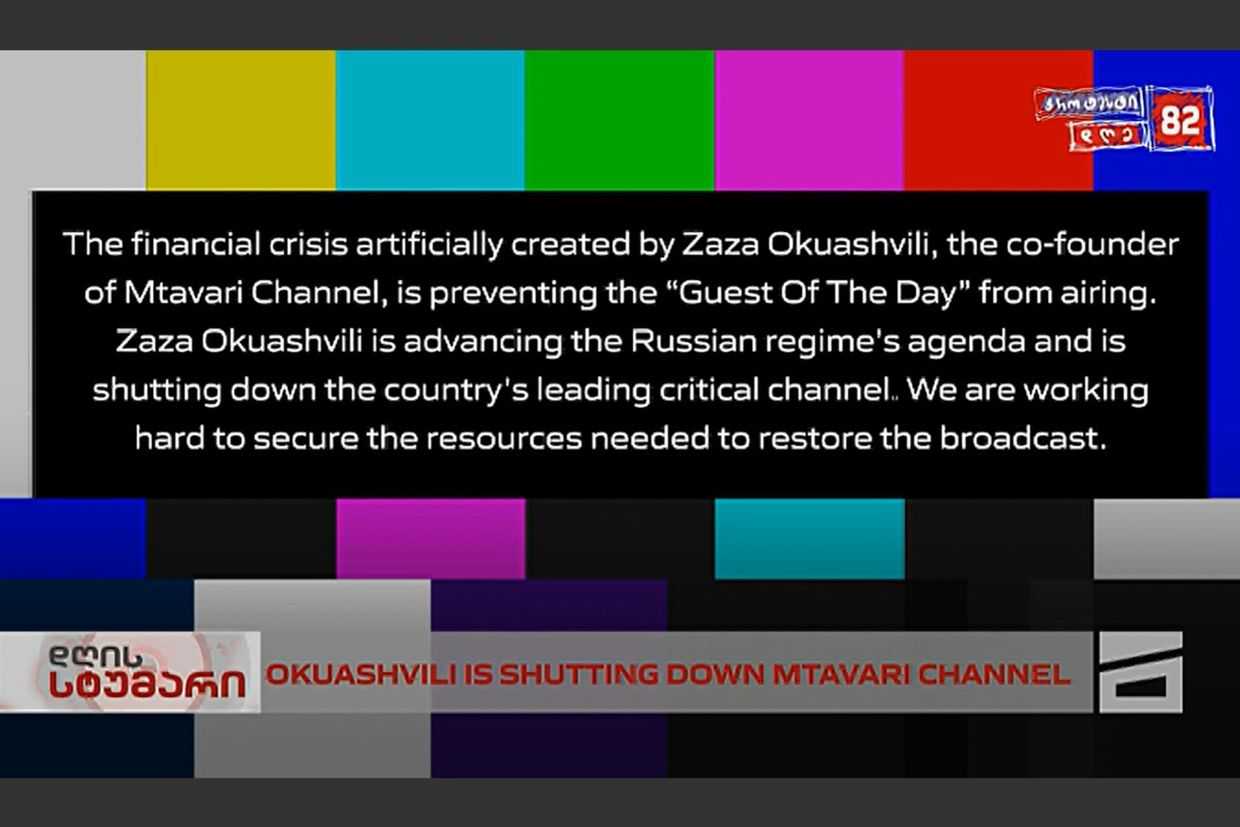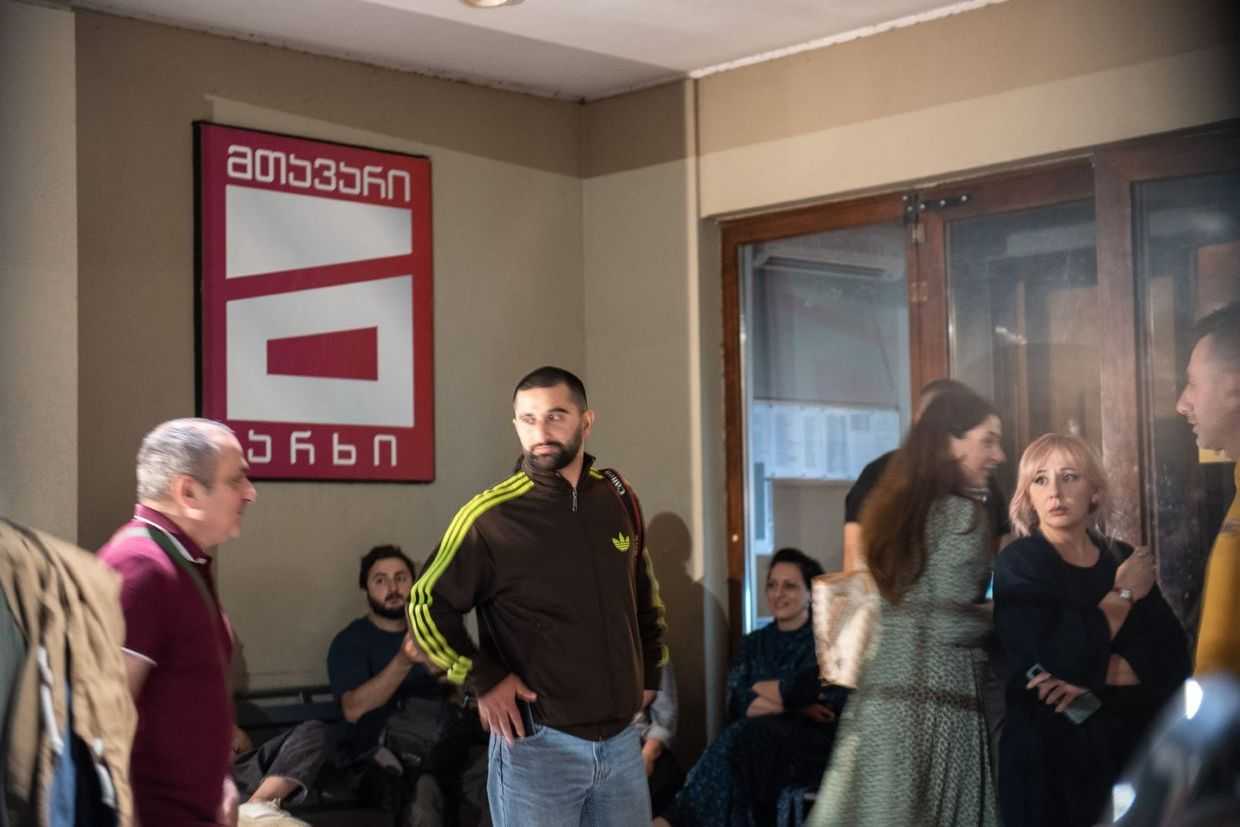Journalists say that Georgian opposition–aligned TV channel Mtavari will completely end broadcasting

According to local media, the employees of the opposition–aligned TV channel Mtavari received a message from General Director Giorgi Gabunia, saying the channel’s broadcasting would be ending completely starting on 1 May.
On Monday, the channel’s journalists and employees confirmed the information on social media.
Irakli Bakhtadze, a journalist who has worked at Mtvari for five years, wrote on Facebook that he is forcibly leaving the ‘house’ that he has been in since its creation.
A similar post was written by journalist Tatia Tsotsonava, who talked about Mtvari’s history, noting that after leaving TV channel Rustavi 2, employees built a new channel from scratch, which they fought for at the cost of their health and lives.
‘Today, the last hope has vanished’, she wrote.
Gabunia has not yet publicly commented on the closure.
According to Nika Gvaramia, leader of the opposition group Coalition for Change and former General Director of the TV channel, ‘Mtavari will be closed, [but] a new one will be opened’.
In February, Mtavari stated that its network had stopped broadcasting. According to a statement at the time, broadcasts were suspended due to a ‘financial crisis artificially created by the channel’s co-founder, Zaza Okruashvili’.
On 27 January, Mtavari reported that the channel had been turned off for all viewers based in Georgia’s regions and those watching abroad via satellite.
In January, the channel stated that starting from February, most cable TV providers were going to stop broadcasting the channel.
In January’s statement, Mtavari claimed that Okuashvili has been ‘systematically following the path characteristic of the Russian regime [meaning the ruling Georgian Dream party] and gradually closing the channel, which for five years firmly maintained the status of the country’s most influential critical media outlet’.
On 27 January, Mtavari claimed the reason for the crisis was due to director Gogi Kurdadze’s refusal to transfer money to service providers, and that bills had been accumulating in the sales accounts for months. According to the channel, Kurdadze was appointed by Okuashvili.
On 30 January, according to local media, Okuashvili stated that a new director should take over Gabunia’s role.











